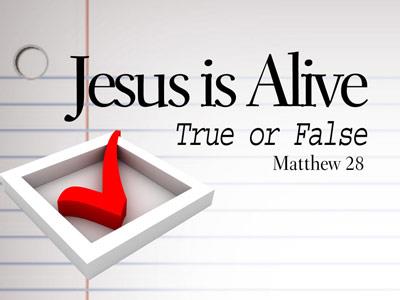-
The Rules We Play By
Contributed by Monty Newton on Nov 28, 2017 (message contributor)
Summary: In all we do and say, we point the way to Jesus Christ.
Title: The Rules We Play By
Text: Acts 4:1-12
Thesis: In all we do and say, we point the way to Jesus Christ.
Introduction:
Most games have rules that players play by. However, sometimes, as has been my experience with playing with our grandchildren, players sometimes change the rules or make up the rules along the way.
I was interested in an ongoing discussion on Facebook about the way some play Monopoly. I was a little shocked by some of the innovative and creative ways players change or modify the rules of Monopoly to their own liking. Some created pots where all the fines were collected so whenever anyone passed “Go” they not only received $200 but they also received whatever was in the pot. Some doubled the $200 to $400… after all, what good is a measly $200 in todays economy.
One Facebook contributor wrote on June 4, 2008 at 8:57 p.m. saying, “We play with an odd variation: All of the rules are by-the-book, except that we play with four boards instead of one. All of the ‘GO’ spaces are in the middle of the table, but they are treated as one space. When you pass ‘GO’ on one board, your piece continues to move in a straight line, so your movement around all four boards is like a cloverleaf pattern. We normally use four different international sets (I have over 70 different Monopoly sets), so each board has its own money. Instead of starting with $1500, each player would start with $1500, 1500 euro, 1500 yen, and 1500 pounds (assuming we were playing the U.S., European, Japanese, and British sets). If you run out of money on one board, you can use money from another, but you have to pay a 10% exchange fee to do so. Trading properties across boards is perfectly legal as well, but each board’s houses and hotels are kept separate.“
Have you ever wondered if Christianity were to be played as a game, what would be the rules? Are there any stated ethical guidelines about how it is we do Christianity and particularly how we act out and speak of our faith? I don’t know that there is specific set of directions, but our text today gives us some insight into what should be included if there were.
The first rule we play by is:
I. We are healers, not hurters
“…are we being questioned because we’ve done a good deed for a crippled man?” Acts 4:9
The background for this response is rooted in an incident that happened at the Temple gate the day before. Acts 3:1-11
The leading priests, the captain of the Temple guard and some of the Sadducees had approached Peter and John for having told the people who had witnessed the healing of the lame man, that they had done so in the name of Jesus. They said, “This is the same Jesus whom you handed over and rejected before Pilate, despite Pilate’s decision to release him. You killed the author of life, but God raised him to life. The name of Jesus has healed this man.” Acts 3:13-16
In our text it says they were very disturbed that Peter and John were claiming on the authority of Jesus, that there is a resurrection of the dead. (Acts 4:2) This was an affront to the Sadducees because they did not believe in a bodily resurrection of the dead. But since it was late in the day, they had Peter and John arrested and tossed into jail for the night.
The next morning they had their hearing, so to speak. They were brought from their jail cell before the Council which was made up of Annas, the High Priest, his predecessor, Caiaphas, and other rulers, elders and teachers of religious law. It was a religious tribunal or court and the “supreme justices” who sat on the bench wanted to know, “By what power or in whose name, have you done this?” (Acts 4:7)
In response, Peter, filled with the Holy Spirit, asked them, “Are we being questioned because we’ve done a good deed for a crippled man?” (Acts 4:9)
Peter and John had been jailed and were now being charged by a religious court that clearly felt threatened by the sway of public support in favor of Jesus, who they had hoped to be done with following the crucifixion. Verse 4 says those who had witnessed the lame man’s healing and had heard Peter speak of Jesus had become followers of Christ. They totaled 5,000 men, not counting women and children. Instead of being rid of Jesus, they had called a council to deal with what must have felt like the exponential spread of his influence.
And to make matters worse, the whole ongoing saga was not that Jesus Christ was a bad guy, but because he was a good guy. They just didn’t want to acknowledge it… to do so would be counter- productive to their own cause.

 Sermon Central
Sermon Central



